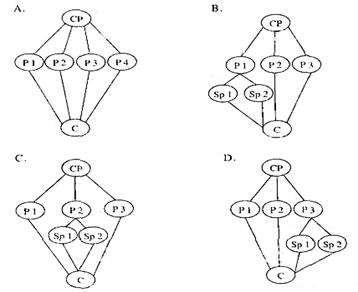题目内容
At this special rate,you'll save more than 73% off the cover price with our Continuous Renewal Guarantee ! You'll also get FREE access for 6 months to the Reader's Digest Digital Edition for iPad or Kindle Fire,with your paid subscription(订阅).
Subscribe to Reader'S Digest today and Read up!

Continuous Renewal(续订):
Your subscription will be automatically renewed at significant savings off the cover price,unless you tell us to stop.You authorize us to charge your credit card for your renewal subscription before your current subscription expires(到期)at the low renewal rate then in effect.If your credit card can't be charged for any reason we will bill you directly instead.This service will continue each year until you tell us to stop.Cancel at any time at www.rd.com/cutomer-care and get the money back on all unmailed issues.
Offer is good in U.S.? only.
One-year cover price is $47.78.Each 1-year subscription includes 12 issues.Please allow
4-6 weeks for delivery of your first issue.Free access to the iPad edition is available one time only
for 6 months with paid subscription;the following print subscriptions will not qualify subscriber for free access to the iPad editions.
For customer service , please click here.
1.You will save around________ against the cover price with Continuous Renewal Guarantee in
two years.
A.$46????????? B.$73????????????? C.$23???????????? D.$71
2.Which of the following sentences is TRUE?
A.If you stop the continuous renewal, you can’t take the money back.
B.If you continue to subscribe it,the former service will expire.
C.If you want to stop the service,you can visit the website to cancel it.
D.If your credit card can’t be charged,delivery of issues will directly be stopped.
3.We can know from the advertisement ____.
A.only readers in America call get the discount
B.1-year subscription covers 12 issues and free delivery
C.all subscribers will be guaranteed to get free iPad editions
D.if you Pay money,you can access the digital edition without limit???
4.What is the purpose of the advertisement?
A.To sell Reader’s Digest Digital Edition.
B.To offer customer service to readers.
C.To introduce subscription to Reader's Digest.
D.To recommend continuous renewal subscription.
1.D
2.C
3.A
4.D
【解析】
试题分析: 本文是介绍Continuous Renewal Guarantee这本杂志的预定,及续订,可以享受折扣。
1.D 细节理解题。根据最后一段提到One-year cover price is $47.78.所以两年价格是47.78*2,再根据第一段提到At this special rate,you'll save more than 73% off the cover price with our Continuous Renewal Guarantee,可以节省百分之七十三,所以选D项。
2.C 细节理解题。根据第二段提到Cancel at any time at www.rd.com/cutomer-care and get the money back on all unmailed issues 如果你不想要了,去网站可以取消服务,所以选C项。
3.A 细节理解题。根据文中提到Offer is good in U.S.? only.可知是专门为美国用户准备的,所以选A项。
4. D 细节理解题。根据文中提到Your subscription will be automatically renewed at significant savings off the cover price,unless you tell us to stop如果你自动续订的话,将会有一定的折扣,除非你告诉我们想不订了,所以选D项。
考点:文化类阅读。

Wilderness
“In wilderness(荒野) is the preservation of the world.” This is a famous saying from a writer regarded as one of the fathers of environmentalism. The frequency with which it is borrowed mirrors a heated debate on environmental protection: whether to place wilderness at the heart of what is to be preserved.
As John Sauven of Greenpeace UK points out, there is a strong appeal in images of the wild, the untouched; more than anything else, they speak of the nature that many people value most dearly. The urge to leave the subject of such images untouched is strong, and the danger exploitation(开发) brings to such landscapes(景观) is real. Some of these wildernesses also perform functions that humans need—the rainforests, for example, store carbon in vast quantities. To Mr.Sauven, these ”ecosystem services” far outweigh the gains from exploitation.
Lee Lane, a visiting fellow at the Hudson Institute, takes the opposing view. He acknowledges that wildernesses do provide useful services, such as water conservation. But that is not, he argues, a reason to avoid all human presence, or indeed commercial and industrial exploitation. There are ever more people on the Earth, and they reasonably and rightfully want to have better lives, rather than merely struggle for survival. While the ways of using resources have improved, there is still a growing need for raw materials, and some wildernesses contain them in abundance. If they can be tapped without reducing the services those wildernesses provide, the argument goes, there is no further reason not to do so. Being untouched is not, in itself, a characteristic worth valuing above all others.
I look forwards to seeing these views taken further, and to their being challenged by the other participants. One challenge that suggests itself to me is that both cases need to take on the question of spiritual value a little more directly. And there is a practical question as to whether wildernesses can be exploited without harm.
This is a topic that calls for not only free expression of feelings, but also the guidance of reason. What position wilderness should enjoy in the preservation of the world obviously deserves much more serious thinking.
【小题1】John Sauven holds that_____.
| A.many people value nature too much |
| B.exploitation of wildernesses is harmful |
| C.wildernesses provide humans with necessities |
| D.the urge to develop the ecosystem services is strong |
| A.The exploitation is necessary for the poor people. |
| B.Wildernesses cannot guarantee better use of raw materials. |
| C.Useful services of wildernesses are not the reason for no exploitation. |
| D.All the characteristics concerning the exploitation should be treated equally. |
| A.Objective. | B.Disapproving. | C.Sceptical. | D.Optimistic. |
A. | B. | C. | D. |
Wilderness
“In wilderness(荒野) is the preservation of the world.” This is a famous saying from a writer regarded as one of the fathers of environmentalism. The frequency with which it is borrowed mirrors a heated debate on environmental protection: whether to place wilderness at the heart of what is to be preserved.
As John Sauven of Greenpeace UK points out, there is a strong appeal in images of the wild, the untouched; more than anything else, they speak of the nature that many people value most dearly. The urge to leave the subject of such images untouched is strong, and the danger exploitation(开发) brings to such landscapes(景观) is real. Some of these wildernesses also perform functions that humans need—the rainforests, for example, store carbon in vast quantities. To Mr.Sauven, these ”ecosystem services” far outweigh the gains from exploitation.
Lee Lane, a visiting fellow at the Hudson Institute, takes the opposing view. He acknowledges that wildernesses do provide useful services, such as water conservation. But that is not, he argues, a reason to avoid all human presence, or indeed commercial and industrial exploitation. There are ever more people on the Earth, and they reasonably and rightfully want to have better lives, rather than merely struggle for survival. While the ways of using resources have improved, there is still a growing need for raw materials, and some wildernesses contain them in abundance. If they can be tapped without reducing the services those wildernesses provide, the argument goes, there is no further reason not to do so. Being untouched is not, in itself, a characteristic worth valuing above all others.
I look forwards to seeing these views taken further, and to their being challenged by the other participants. One challenge that suggests itself to me is that both cases need to take on the question of spiritual value a little more directly. And there is a practical question as to whether wildernesses can be exploited without harm.
This is a topic that calls for not only free expression of feelings, but also the guidance of reason. What position wilderness should enjoy in the preservation of the world obviously deserves much more serious thinking.
【小题1】John Sauven holds that_____.
| A.many people value nature too much |
| B.exploitation of wildernesses is harmful |
| C.wildernesses provide humans with necessities |
| D.the urge to develop the ecosystem services is strong |
| A.The exploitation is necessary for the poor people. |
| B.Wildernesses cannot guarantee better use of raw materials. |
| C.Useful services of wildernesses are not the reason for no exploitation. |
| D.All the characteristics concerning the exploitation should be treated equally. |
| A.Objective. | B.Disapproving. |
| C.Sceptical. | D.Optimistic. |
A. | B. |
C. | D. |





















































 A
A 